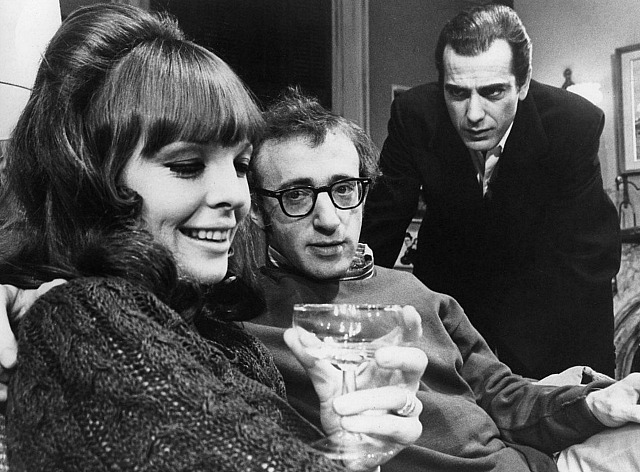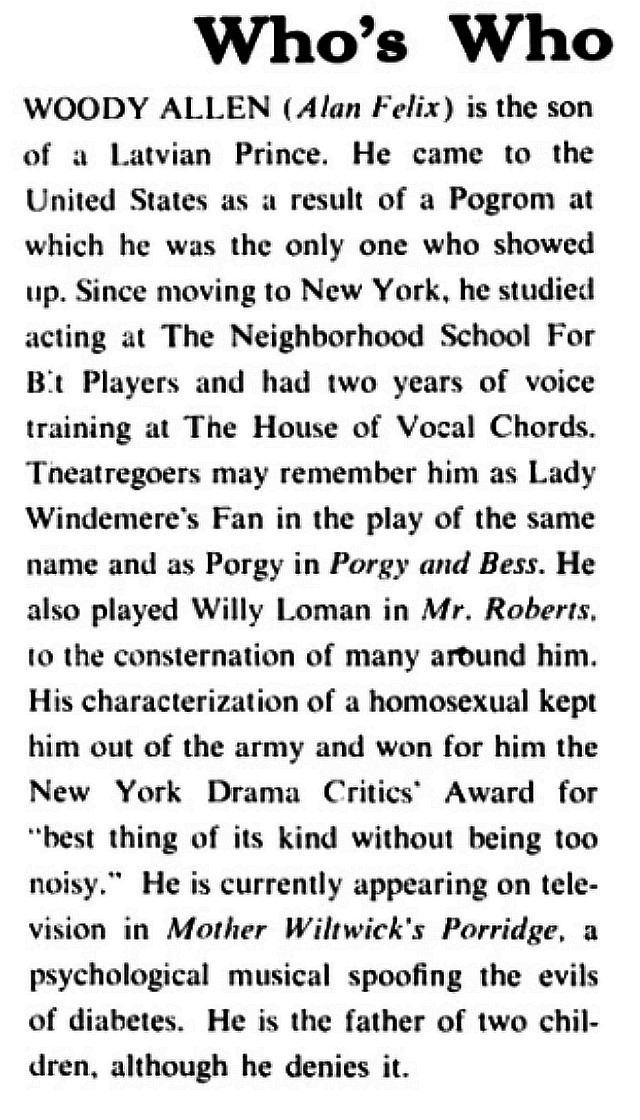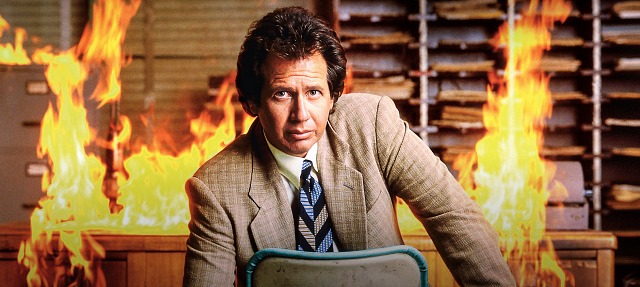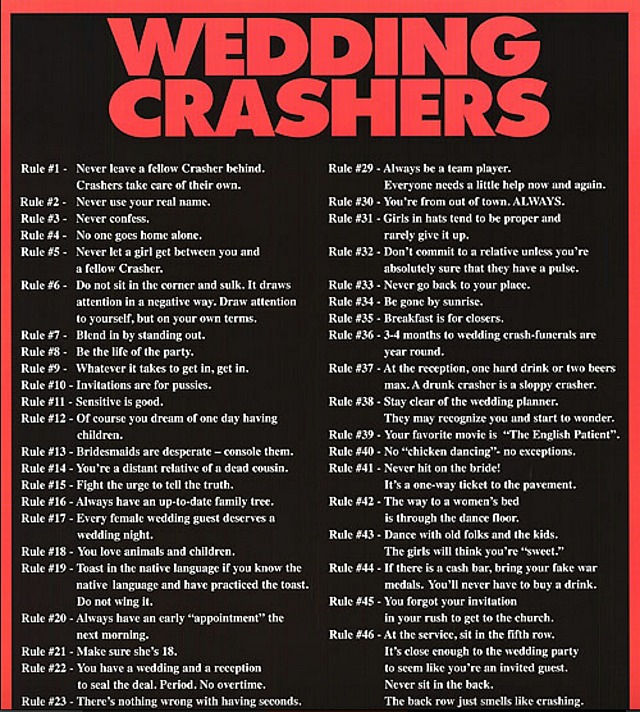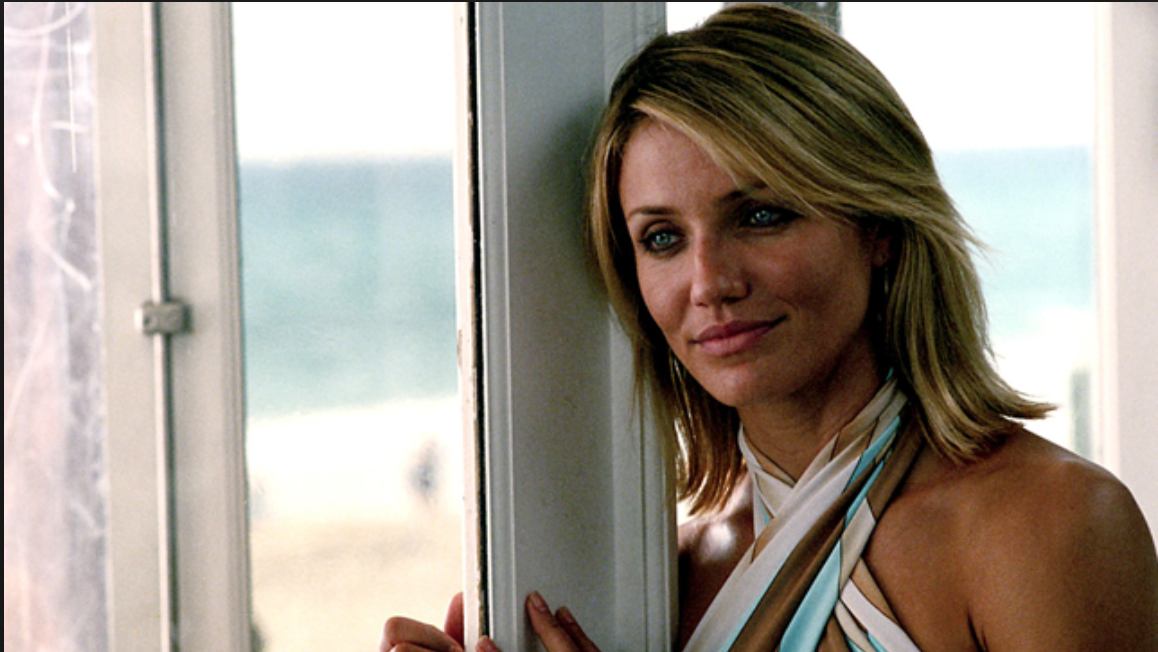Most of yesterday afternoon was about hiking in Sullivan Canyon, a leafy, horse-trail community just west of Mandeville Canyon. We defied the posted warnings and parked on Old Ranch Road, about 1/2 mile north of Sunset. We walked up a horse trail to Sullivan Canyon trail, which goes on and on. By the time we were back to the junction of Sunset and Old Ranch we’d hiked five miles.
We also checked out Diane Keaton’s super-sized, industrial-chic home, which was written about last October in Architectural Digest. Keaton also published a book about it — “The House That Pinterest Built.”
We only scoped out the exterior, of course. It’s magnificent and exacting, so beautifully textured and all of a piece in so many ways, but at the same time (here it comes) so immaculate that it feels more like the workspace of an enlightened, forward-thinking company (it reminded me a bit of J.J. Abrams‘ Bad Robot headquarters) than what most of us would call a “home.”
Homes need to feel imperfect and lived in and just a little ramshackle — a tad sloppy and messy with the scent of white clam sauce and peanut butter and sliced lemons, and maybe a hint of cat poop. A good home always has magazines and books and vinyl LPs all over the place, not to mention flatscreens and blankets draped over couches and at least three or four cats and dogs hanging around. Keaton’s place might feel homier inside, but the exterior seems a bit too precise.
Oh, and there’s hardly any tree-shade in the front yard of Keaton’s place. Warren Beatty once said that great-looking hair constitutes 60% of a woman’s attractiveness; by the same token a great-looking home needs great trees (sycamores, jacaranda, lemon eucalyptus, pin oak) to drop a few thousand leaves and shade the place up.
6:15 pm update: I just ran into Warren Beatty and Annette Bening at Le Pain Quotidien on Melrose…honest! I told him I loved the quote about hair constituting 60% of a woman’s beauty or appeal, and he said, “I don’t think I ever said it.” Huh. “You read this somewhere?,” he asked. Yeah, I said. In an article about Diane Keaton or about her home, and just this morning. I definitely didn’t invent it, I emphasized, but I love the observation regardless.
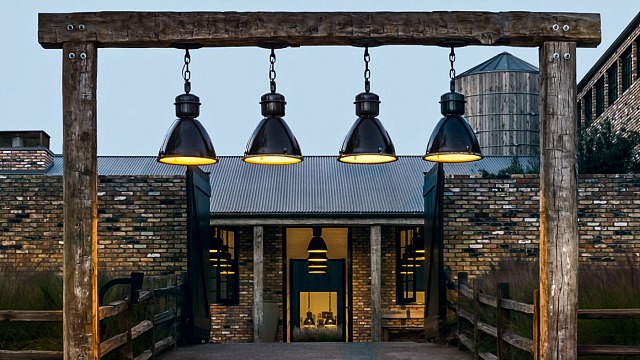
Diane Keaton’s spacious, self-designed home, just around the corner from Old Ranch Road and exactingly designed like nothing you’ve ever seen.

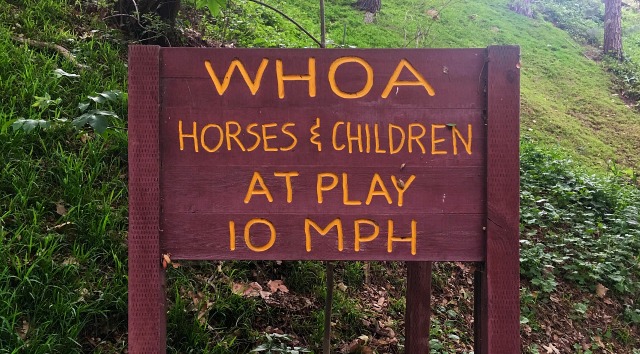

Built in Sullivan Canyon in 1956, Mandalay (2200 Old Ranch Road) was a sprawling, one-story home designed by architect Cliff May, who is regarded as the creator of the California Ranch-style house (i.e., early 1930s). May died in 1989. The Mandalay property was bought, destroyed and redeveloped. The big gate looks like the entrance to Jurassic Park.


